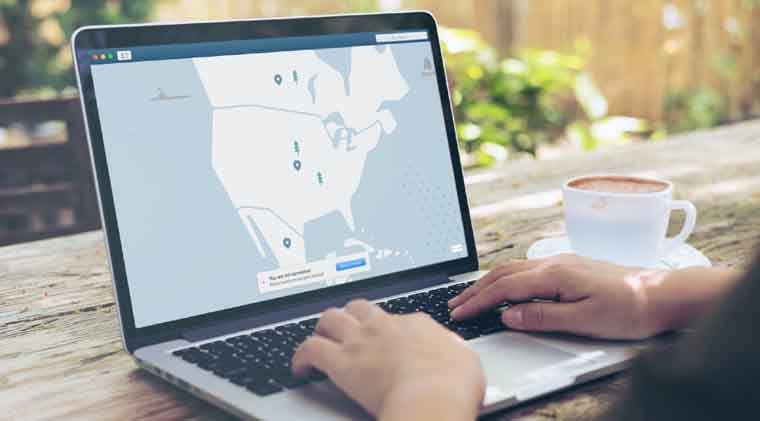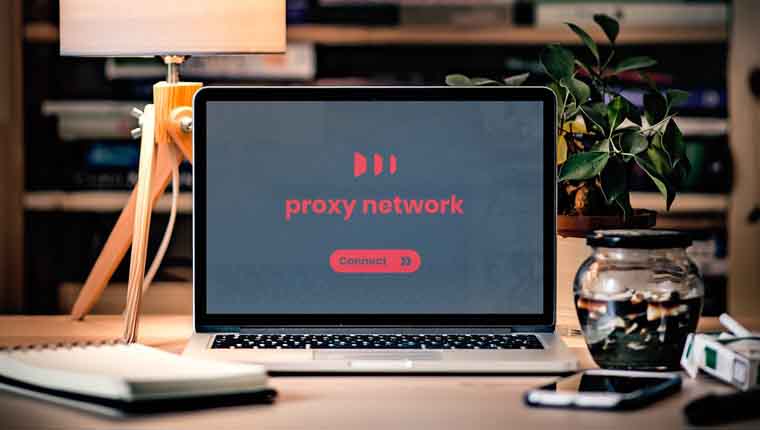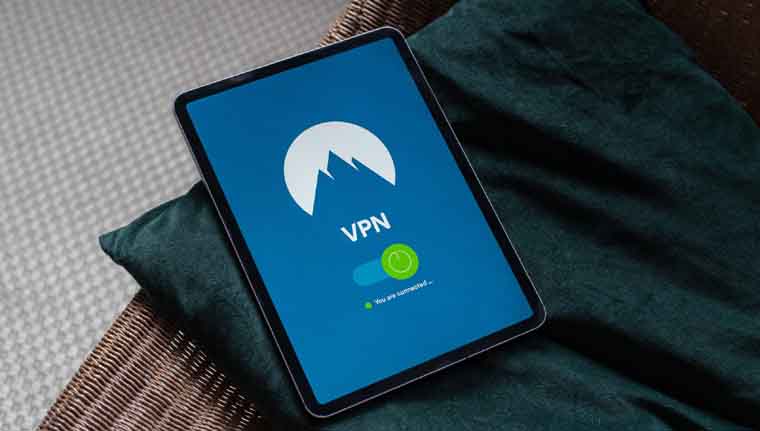
An average person can choose a VPN or proxy for millions of reasons. And these reasons are not fishy; they could be something extremely trifle.
For a newbie, proxy and VPN sounds like "potahto potayto", But some differences make them dissimilar from each other. Each with its distinct features helps the user to:
- Encrypt the data
- Provide privacy
- Access geo-blocked websites, and
- Hide the location
But, which option is better for data protection: proxy or VPN? Let’s find out below.
Understanding Proxy
A proxy acts as a dispatcher from your device to the website you visit. The traffic doesn’t go directly; it goes through a mediator channel and links you to the host server. The primary purpose is to keep your IP address hidden.

So what the website sees is another IP address or IP of the Proxy. However, proxy servers can only be used for applications. And they don’t help to encrypt the traffic.
The most common use of proxy servers is accessing movies and channels unavailable in your country.
Residential and Datacenter proxies may appear on different sides of the same coin, but striking dissimilarities exist.
- The residential proxy is provided to an IP address by an Internet Service Provider (ISP) for a physical location.
- In contrast, Datacentre proxies are not provided by an ISP but by a corporation creating a secure IP for an organization.
Proxy Sub-types
Proxes are divided into three sub-types:
SOCKS Proxy
Socks Proxies are limited to websites and are used on applications too. Since they can handle all kinds of traffic, they have higher loads. Hence you can expect SOCK proxy to be slower than HTTP proxy.
HTTP Proxy
It works for web pages only. All you have to do is to set up the browser with HTTP proxy, and all the traffic will route through it.
Transparent Proxy
These are different from HTTP and SOCK proxies. These proxies are popular because they don’t give users a clue of their presence. These proxies are employed mainly by:
- Employers; in an organization - or
- Parents; to monitor their children’s online activity
Moreover, these proxies help cafes, restaurants, and hotel owners to authenticate the users logging on to the public Wi-Fi. They also help monitor the bandwidth in public Wi-Fi.
Benefits of Proxy
Proxy servers are helpful in many ways. Some of them are discussed below:
- First, the proxy hides the IP address and makes the user completely anonymous.
- Proxy enables you to get around the web and mask all online activity.
- No need to download any software to use the proxy servers.
- You can access all the geo-block websites and services.
- Proxy servers are available for free. Also, some budget features can be purchased depending on their use.
Disadvantages of Using Proxy
It sure comes for free, but it comes with its disadvantages. Read on to be aware of the shortcomings of the proxy servers.
- Proxies are unique to a browser or application, not to a network.
- The web traffic is not private. The server owner can track and view your online activities.
- You are susceptible to malware and Trojans when using the proxy.
- The data is not encrypted when using the proxy. Therefore, you are vulnerable to the risks of a data breach.
- The speed cannot be persistent. If there is traffic on the proxy server, the browsing can become slow as a result. However, when purchased for a private proxy, the speed becomes better.
Understanding VPN
VPN or Virtual Private Network routes the internet traffic from a remote server. The server hides your IP address; hence the website cannot discover your location or IP address.

The VPN works on an operating system; hence it works for both application and browser. It also encrypts the traffic between the device and the internet.
While connected to the VPN, the internet service provider ISP cannot view your activity. Hence the data used is also protected.
The unique encryption protects data and activity from website tracking, snoopers, hackers, and government surveillance.
Common VPNs
Remote Access VPN
A user connects a private channel through remote access and can access the remote services during the session.
The connection between the user and network is highly secure and private. Hence it is often opted by homeowners and businesses.
It is famous among users for geo-restriction bypass. When working remotely, employees can also use VPN to create a safe gateway to the company’s network.
Site to Site VPN
Router to router VPN is known as site-to-site VPN. It is the preferred choice of organizations that have offices in different locations.
It enables the organization to connect all the offices from various locations on one network. It is secure and private while creating a safe passage.
The router is like a passage to connect the two routers in site to site VPN. On completing the authentication, the two routers can communicate with each other.
Benefits of VPN
Some of the noted benefits of VPN are:
- It hides your original IP address and assigns a new one.
- Uses end-to-end encryption for data security.
- It enables you to use public Wi-Fi with safety measures.
- Using a VPN enables you to use geo-blocked websites and services.
- All online activity on your device remains anonymous and secure.
Disadvantages of VPN
Like all good things, VPN also may have some weaknesses, such as:
- VPN needs to be purchased to avail the services.
- You may experience slow internet speed when browsing while using VPN.
- It varies from software to software. Be wary of and research before selecting the right VPN service.
Choosing Between VPN and Proxy
To understand the differences, Jeff Peters explains how these features are distinct from the other.
Take a look at this quick table to find what works best for you.
| Proxy | VPN | |
| Encryption | No | Yes |
| Anonymity | Limited or no anonymity | Yes |
| Ideal for streaming | If bypass proxy | Yes |
| Security | None | Decent security |
| Ideal for torrenting | Yes, but with shredded security | Yes |
| Ease in use | May need some time to learn | Yes |
| Speed | Depends on the server in use | Slow due to data encryption |
| Cost | Free. can be purchased to use extended features | Not free |
Conclusion
Proxy and VPN may look similar due to coinciding features such as:
- Hiding the IP address
- Routing the traffic
To know which one offers better protection, you need to consider how you’re using the internet.
That’s because, if you have mediocre use, VPN is an expensive choice. You can do well with the restricted features offered by free proxy servers.
But if you are insistent on the privacy and security of your home and organization, VPN goes a long way.
Share this post
Leave a comment
All comments are moderated. Spammy and bot submitted comments are deleted. Please submit the comments that are helpful to others, and we'll approve your comments. A comment that includes outbound link will only be approved if the content is relevant to the topic, and has some value to our readers.

Comments (0)
No comment